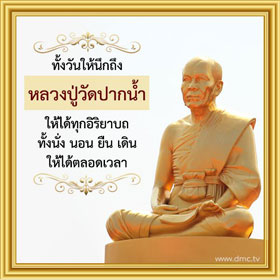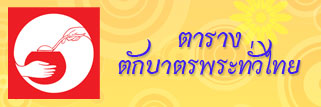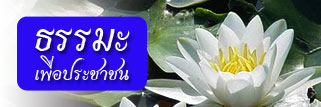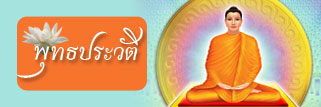Dhamma PracticeIn Buddhism ‘dhamma’ means ‘correctness’, ‘goodness’ or ‘what the Buddha taught’.“Dried sandal wood is still fragrant, squeezed sugar cane is still sweet, refined salt is still salty, but a wise man, even in crisis, still practices Dhamma.”Often by the time we can tell the difference between good and bad behaviours, we can have erred into a lot of mistakes which bring us later regret. Unfortunately, even though such behaviours might have been mistakes, but they have retributions which must eventually catch up with us. The only ones who are safe are those who have never erred into doing anything unwholesome at all.The sure way to make sure that we don’t build up a toll of bad retribution for ourselves is to practice the Dhamma.Not killing: Not killing people, fishing, hunting, or practicing cruelty towards animals.Definition of practicing DhammaThe Pali word we use for Dhamma practice is ‘dhammacariya’, which is a compound of two words-‘dhamma’ and ‘cariya’.In Buddhism ‘dhamma’ means ‘correctness’, ‘goodness’ or ‘what the Buddha taught’.The word ‘cariya’ means ‘conduct’-therefore, ‘dhammacariya’ means the ‘practice of good deeds’ or ‘correct practice’.The Lord Buddha chose to put “Dhamma Practice” as the sixteen blessing (i.e. before “Looking after one’s extended family” [17] and “Blameless Work” [18]) because looking after one’s extended family and harmless work, both of which concern our dealings with a wider society (the members of which have a wide variety of dispositions) are possible minefields for conflice. Without particular caution in our dealings, we run a risk of spoiling our good intentions or coming into conflict through our own partiality.Thus, before embarking on works of “social value” we have to prepare ourselves by studying the right approach to our worldly and spiritual work so as not to bring harm inadvertently to ourselves or others. In this blessing we will discuss the two categories of Dhamma Practice:1.Pure practice is behaving in accordance with purity. This particularly means the decision-making we must establish in our thinking of ‘purity’ and do not allow impure things like defilements and temptation to interfere with what we know is good and fair. Pure practice instills respect, and dignity in yourself and others. It includes:- Refraining from bias- Avoiding the six roads to ruin- Fulfilling one’s duties in the six directionsNot stealing: Not thieving, mugging, shoplifting, corruptingLack of bias – there are four forms of bias that comprise:- Bias because of desire: parents who do not love their children equally, due to bias based on desire, will treat their children unfairly.- Bias because of hatred: Teachers suffering from bias based on hatred or anger will behave unfairly towards annoying students; perhaps giving them a grade that is less than they deserve.- Bias because of ignorance: Someone who suffers from bias because of ignorance may make a decision based on his own stupidity or lack of information. He may put someone wicked- Bias because of fear: e.g. someone who is biased because of fear might bear false witness against someone he knows is innocent because he is afraid to tell the truth.Anyone who can abstain from the Four Forms of Bias is someone who abides in justice. They will be someone who follows strictly the guidelines of all what is fair.“Whoever can refrain from bias because of desire, hatred, ignorance, and fear, his dignity will be as outstanding as the waxing moon in the sky every night.”2. Practice for purity: There are many ways of practicing good deeds for your own benefit, but here we emphasize the groupings of good deeds which boost our sense of responsibility for our own human dignity. Practice for purity can be attained by following the Tenfold Path of Wholesomeness (kusaladhammapatha).Not gossiping: Not giving malicious speech, divisive gossip, turning one person against another, or mudslinging.Anyone with these sorts of behaviours is truly pure in body, speech and mind the whole of the time:1. Not killing: Not killing people, fishing, hunting, or practicing cruelty towards animals. The purpose of this path is to solve the problem in a peaceful way without taking the lives of others because one knows that likking always creates cruelty in the mind. The mind will become sad and upset and the killer will receive retribution from his deed. He will be aware that the relatives of the people he killed will come to hurt him. It is a solution that elongates an unfinished problem.2. Not stealing: Not thieving, mugging, shoplifting, corrupting, and deceiving. The purpose of this path is for everyone to rightly earn their living, so they can spend their earnings freely without fear of needing to payback anyone.3. Not committing adultery: Faithfulness to one’s spouse refraining from rape and, pre-marital sex. The purpose of this path is to elevate our mind and be responsible for other people’s dignity. This keeps society at peace.4. Not lying: Not telling lies, exaggerating, and forgery. The purpose of this path is for everyone to be honest and brave in facing the truth with dignity. We should not try to escape the problem or talk of its benefit to ourselves.5. Not gossiping: Not giving malicious speech, divisive gossip, turning one person against another, or mudslinging. The purpose of this path is to avoid the habit of taking sides or gossiping. This will bring harmony to the society.Not speaking harshly: Not calling names or swearing.6. Not speaking harshly: Not calling names or swearing. The purpose of this path is be thoughtful of your own words and not disturb other people with words.7. Not chattering idly: Avoid purposeless babble, raving, and boasting. The purpose of this path is to be responsible for our words.8. Not thinking to take the possessions of others: Not considering getting something one wants through a dishonest manner and not coveting others’ possessions. The purpose of this path is to respect others’ possessions and retain a peaceful mind from wanting other people’s possessions. Be generous and willing to help society.9. Removing your self from vengefulness: Do not want to take revenge or get back at someone. The purpose of this path is to forgive others by avoiding destructible thought, so the mind is at peace and becomes more creative.10. Possess the Right View: Reflecting that good and evil exist, reflecting your debt of gratitude towards your parents, thinking death is not the end of the story, and believing in the law of Kamma. The purpose of this path is for us to have a wholesome mind with right thinking, standards, considerations, and principles. This will influence others’ thoughts to be on the right path as well“I do not see one single path that will create as much good deeds as those that have not begun with the Right View”The Tenfold Path of Wholesomeness is necessary for every person especially for those in a position of power.“Dhamma will protect those who practice Dhamma. Whoever wishes for happiness, success, and a position of power must practice Dhamma.”Whoever wishes for happiness, success, and a position of power must practice Dhamma.The Benefits of practicing Dhamma1. Creating immense wholesomeness.2. Be a diligent person.3. Be an honest person.4. Be a leader who helps on the advancement of Buddhism.5. Be happy both in this life time and afterlife.6. Having no enemies.7. Be a person who follows advice from the Wise.8. Make peace for one’s self and other people.9. Build the path to the realm of human, heaven, Brahma, and Nirvana.“Those who practice Dhamma will have happiness.”

http://goo.gl/7ZsDh













 พิมพ์บทความนี้
พิมพ์บทความนี้




























